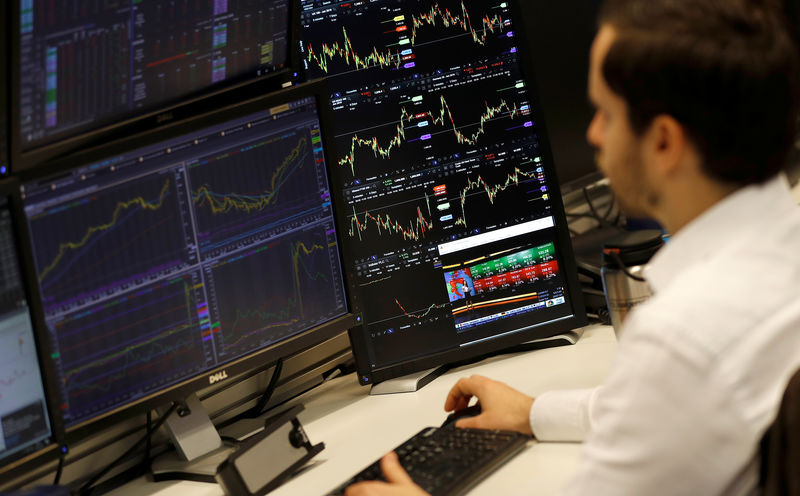By Tom Wilson
LONDON (Reuters) - World shares touched a 21-month high on Monday on signs that the United States and China could soon put an end to a damaging trade war as well as indications that the world may yet dodge an economic recession.
Beijing and Washington spoke on Friday of progress in talks aimed at settling a trade dispute that has bruised the global economy and repeatedly shaken financial markets, with U.S. officials saying a deal could be signed this month.
The MSCI world equity index (MIWD00000PUS), which tracks shares in 47 countries, climbed 0.2% to its highest since February 2018, with major European indexes following Asia upwards.
The broader Euro STOXX 600 (STOXX) rose 0.6%, with Frankfurt's main index (GDAXI), seen as highly exposed to the trade war, climbing 0.8% to reach its highest since June last year. Wall Street futures (ESc1) gained 0.4%.
The optimistic tone reached currency markets, too, as the Chinese yuan
Investors expect the world's two biggest economies to reach a "phase one" trade deal, with U.S. President Donald Trump hoping to sign an agreement with Chinese President Xi Jinping.
The key date in focus is Dec. 15, when new U.S. tariffs on Chinese imports from toys to electronics are due to kick in.
Both sides have an interest in averting those tariffs, with Trump in particular seen as aiming to reap political benefits from sealing a deal ahead of the 2020 presidential election.
"It will be a convenient decision for President Trump to let phase one be signed," said Alessia Berardi, senior economist at Amundi. "This is a kind of low-hanging fruit to collect and is very much possible."
Still, Berardi warned that intellectual property would be a thornier issue and could yet complicate talks next year.
Earlier, the positive mood on trade had sent Asian stocks surging, with MSCI's broadest index of Asia-Pacific shares outside Japan (MIAPJ0000PUS) up 1.2%.
Indexes in Hong Kong (HSI) and Seoul (KS11) gained 1.7% and 1.$% respectively, while mainland Chinese blue chips (CSI300) added 0.7%.
Also emboldening investors was a sense that a global recession, predicted by many economists and investors to hit next year, was a diminishing risk.
On Friday, a better-than-expected U.S. jobs report added to signs of economic resilience. Job growth slowed less than expected in October, with hiring in the two months before that better than previously estimated.
"The macro environment is still resilient, stabilized and maybe even showing signs of improvement - and that is a net positive for risky assets," said Olivier Marciot, senior portfolio manager at Unigestion.
Bond markets, too, suggested that the United States may have dodged a slowdown. The three-month to 10-year Treasury yield curve - a key warning sign of U.S. recession when inverted - is rising again after staying in negative territory for long periods since May.
And on the earnings front, U.S. results are for the third straight quarter defying expectations for an annual aggregate contraction.
"Expectations were low going into earnings, and things are getting better than expected," Marciot said.
Graphic: China's yuan strengthens, https://fingfx.thomsonreuters.com/gfx/mkt/12/8162/8093/yuanstronger.png
WAITING FOR LAGARDE
As the Chinese yuan strengthened, the euro trod water. Investors were waiting for Christine Lagarde's first speech as European Central Bank president.
Markets are assuming that Lagarde, due to talk at 1800 GMT, will stick with the easy policy script of her predecessor, Mario Draghi.
Lagarde has struck a balanced tone in recent comments, saying an accommodative monetary policy was needed but also had side effects that needed monitoring.
The euro (EUR=EBS) was last flat at $1.1165, close to the $1.1180 high reached last month. The dollar against a basket of six major currencies (DXY) was flat at 97.222.

In commodities, oil prices slipped as investors locked in profits ahead of European and U.S. manufacturing data. Brent crude futures (LCOc1) fell 2 cents to $61.67 a barrel shortly after 0930 GMT.